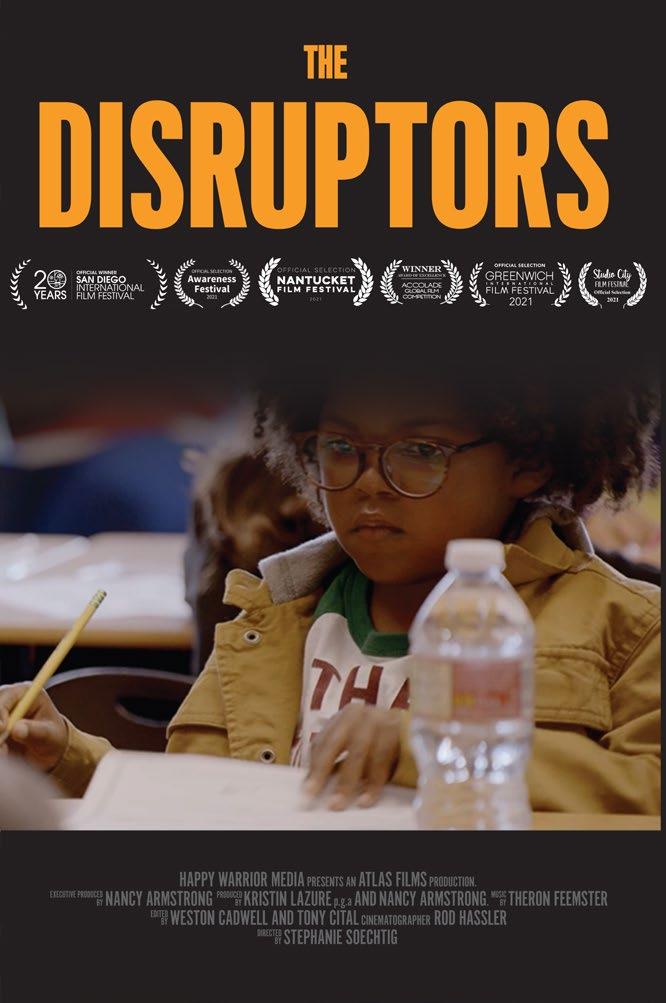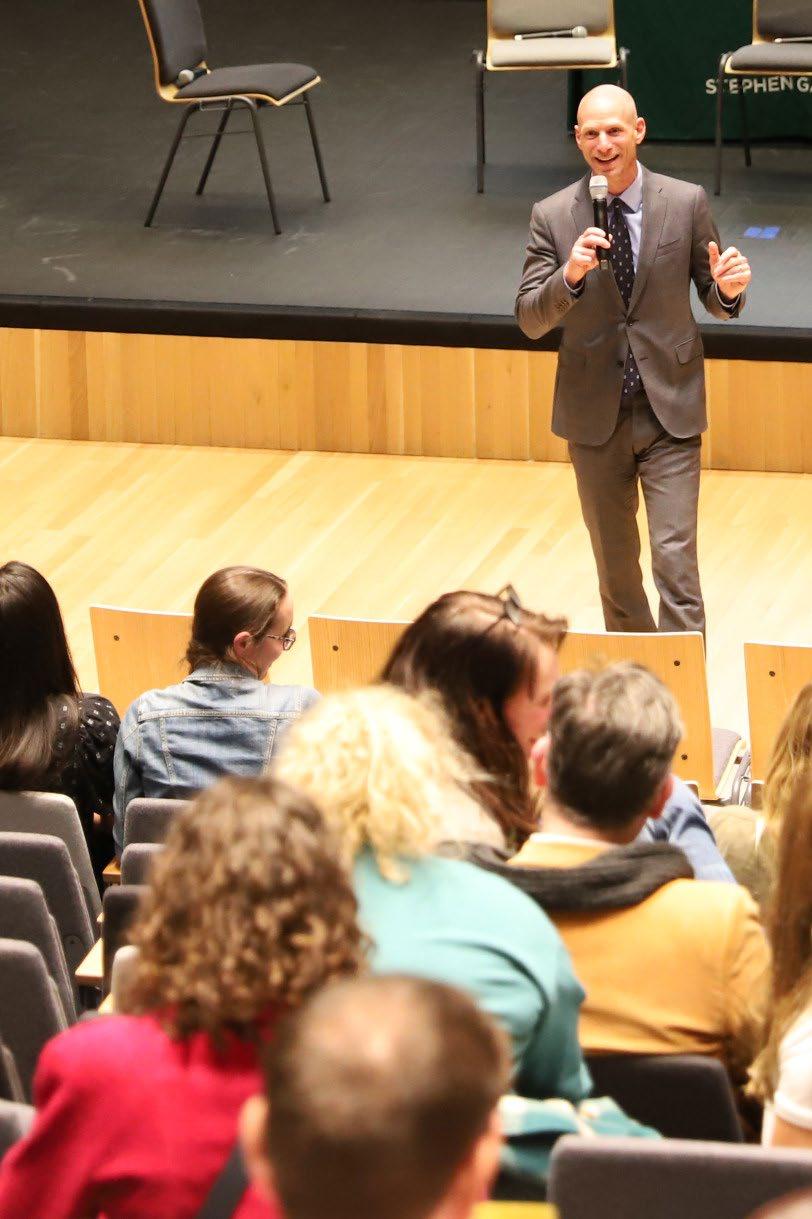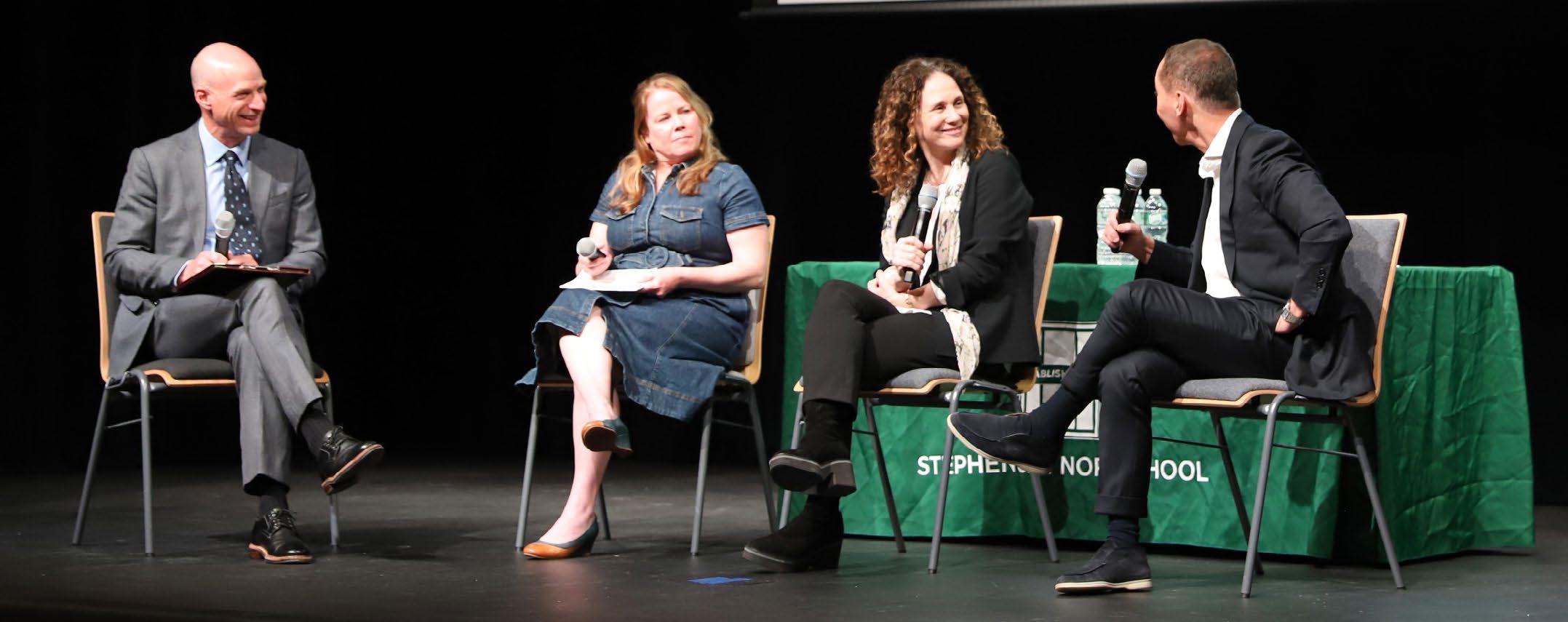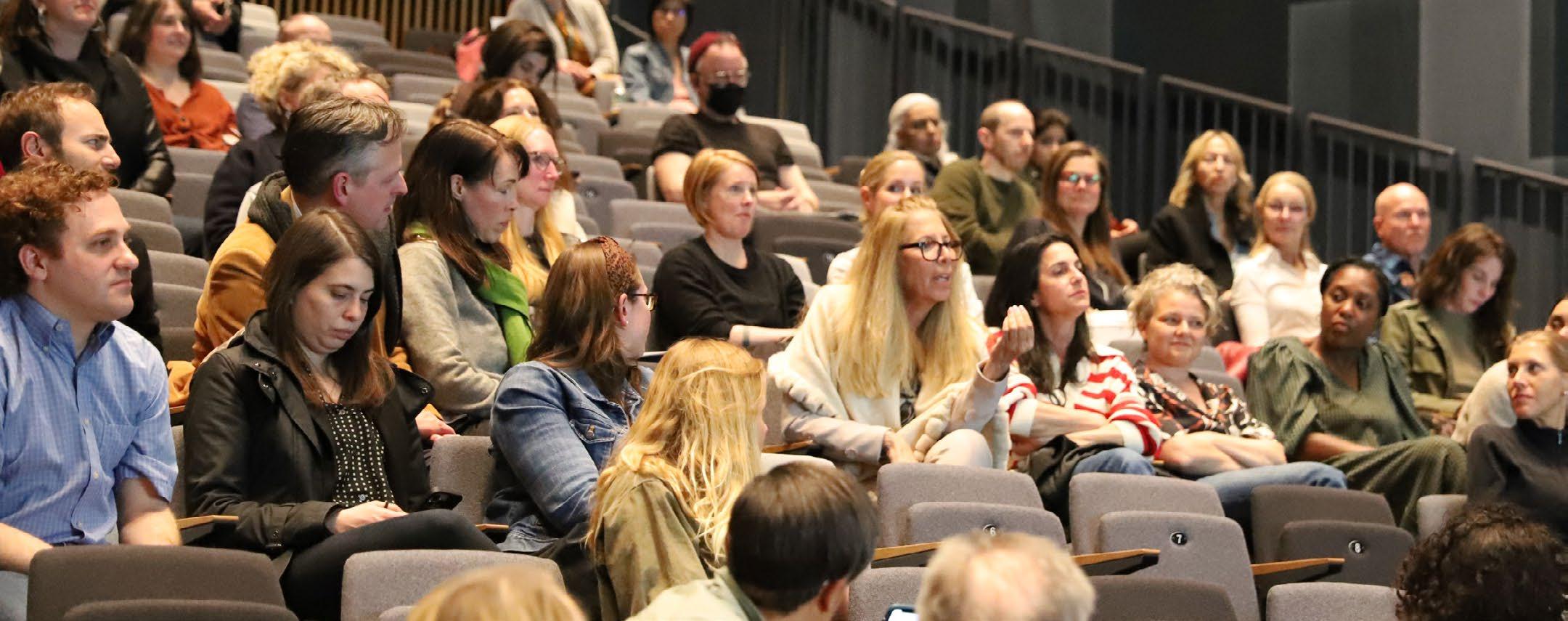
3 minute read
CELEBRATING THE STRENGTHS AND SUPPORTING THE CHALLENGES OF KIDS WITH ADHD: THE DISRUPTORS
Sometimes, what makes us different and challenges us also brings us together. On April 11, over 200 members of the Gaynor community (parents of current, past, and future students, alumni, students, faculty and staff, and friends) joined together in the Yvette Siegel-Herzog Performing Arts Center for a special screening of the documentary on ADHD, The Disruptors. The screening was followed by a panel discussion led by Head of School Dr. Scott Gaynor, and featured Dr. Roy Boorady, Senior Child and Adolescent Psychiatrist at the Child Mind Institute; Dr. Amy Margolis, Associate Professor of Medical Psychology and Director of the Environment, Brain, and Behavior Lab at Columbia University Irving Medical Center; and Jill Thompson, Assistant Head of School at Stephen Gaynor School. The film and the panel discussion had the audience nodding their heads in recognition as the stories and experiences resonated with those in the room.

Advertisement
Attention Deficit Hyperactivity Disorder (ADHD) is one of the most commonly diagnosed — and widely misunderstood — neurological conditions in the world today, affecting nearly ten percent of children in the U.S. and a rising number of adults. The Disruptors documentary features interviews with prominent figures who have been diagnosed with ADHD and who describe both the challenges and advantages of ADHD. It also follows several families through their daily lives as they navigate the difficulties, and the surprising triumphs, of living with ADHD. The film helps debunk the most harmful myths surrounding ADHD, and examines the flip side of this trait — ultimately offering a revelatory understanding of the diagnosis, and real hope for millions of kids, families and adults with ADHD.
After the film screening, Dr. Gaynor kicked off the panel discussion by posing his first question: “Everyone in the room tonight has some understanding of ADHD or might know someone with it, or maybe even their own child might have it. For me, I feel this movie has helped me learn even more about the diagnosis. Why is this movie important to you?”
Assistant Head of School Jill Thompson responded, “Because I work with children with ADHD. Here at Gaynor, part of our mission is that, unless you understand these children, you cannot create an individualized lesson plan or instructional plan for them. So it’s really important to truly understand what are some of the symptoms of ADHD, and what are some of the strategies and techniques that support students with ADHD. So that’s why this movie is important, and I hope everyone at our school gets an opportunity to view the movie and really get a deeper understanding of how our students’ brains work and how they learn.”
GAYNOR GAZETTE 20
Dr. Amy Margolis, who appears in the documentary, said, “It was an exciting process to be part of the film. I think it’s incredibly important to hear shared experiences, and for me, that was how they got me interested. When [the filmmakers] told me that they were going to follow families and really take a deep dive and look at kids from different social strata and kids with different challenges, I really was engaged and excited that maybe we could make something that would help people who struggle to parent their kids to have a shared experience, or for the kids themselves to see the film and see that they're not alone.”
“As somebody who loves movies, I’m so glad they actually made a documentary [about ADHD],” said Dr. Roy Boorady. He continued by saying that most of the movies that have characters with ADHD are fictionalized, like the Percy Jackson series. “But to have a documentary, people can see themselves in the movie in a way that’s much more relaxed. I think it is educational for the parents themselves, but it is also a way to connect with your child by watching a film or movie and then talking about it with them afterward.”
The panelists discussed the issues surrounding medication for ADHD, and how medication is one component of a larger, comprehensive approach to treating ADHD. The panelists all agreed that medication can have positive impacts, but that it should be paired with other components to support children and adults with ADHD.
This event was more than just a screening and a panel discussion; it was an opportunity for the members of the audience to feel seen, to recognize their experiences in those of others, and to better understand the challenges and strengths of the ADHD brain.












